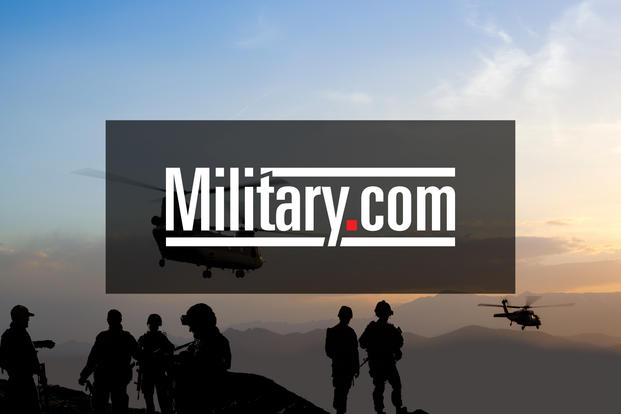FARNBOROUGH, England -- It was business as usual -- with billions in U.S. orders and commitments -- at the Farnborough Airshow despite concerns that politics would cast a shadow.
The show came amid political upheaval in the United Kingdom, with multiple leaders in government resigning over disagreements regarding the nation's Brexit departure from the European Union, set to take place next year. It also came close on the heels of a NATO summit in which U.S. President Donald Trump lambasted allies over the level of their financial commitments, and reportedly threatened to leave the alliance.
But despite the backdrop of geopolitical chaos, U.S. government officials focused on attracting top players in the commercial tech industry.
Sitting in front of a U.S. Air Force military display here, Will Roper, assistant secretary of the Air Force for acquisition, technology and logistics, said there's always room to bring in more talent and develop more contracts, especially in fast-developing sectors such as software and artificial intelligence.
"I don't think we're attracting enough people. We're looking for opportunities to use things like small-business dollars, to use AFWERX so we can get those companies in [and talking to us]," he told reporters Tuesday, referencing the service's program to engage entrepreneurs.
Related content:
- As UK Showcases Its Next-Gen Fighter, US Stresses Interoperability
- Military.com Farnborough Airshow Coverage
- Navy's Fire Scout Drone Helo May Be Sold to Allied Militaries Soon
One of the issues deterring companies from bidding on contracts is how slowly the awards process moves, Roper said, alongside Air Force Undersecretary Matt Donovan.
"In [this] business … we have to move faster than we can move [under current conditions], even on our best days in the government. So we're looking for ways that we can do [contract] awards in weeks instead of months. If we end up making ourselves so slow and sporadic that we can't work with this vibrant, churning current of innovation in industry, then we could lose out to companies or nations that can," he said.
Promoting Stability and Outreach
The U.S. commercial industry dwarfed the U.S. military presence here, something experts said was to be expected.
"Farnborough has never been much of a military show -- it's more about commercial jetliners," Richard Aboulafia, vice president of the Teal Group, told Military.com on Thursday.
Jim McAleese, expert defense industry analyst and founder of McAleese & Associates, agreed.
"The show was dominated by the Boeing vs. Airbus 'cage-match' of dueling new commercial aircraft orders," he said via email.
Defense companies and foreign partners locked down deals. Lockheed touted its U.K. space contract to develop a first-of-its kind commercial spaceport in Scotland, while Raytheon formed a partnership with Jordan to develop cyber protections for its aircraft, McAleese said.
Roper and Donovan both said they are thankful to allies, especially the U.K., for the opportunity to hold government and commercial meetings that would "strengthen alliances and expand our partners."
"To paraphrase [Defense] Secretary [Jim] Mattis, 'Nations who have allies thrive and those that do not wither,'' Donovan said. "Being able to interact with allies and potential allies and new partners here at air shows like Farnborough is very, very important."
Trump last week in Brussels said he wanted NATO members to double their gross domestic product spending on defense to 4 percent. The U.S. spends roughly 3.3 percent of its GDP on defense, according to defense budgets, as reported by NPR.
Some questioned whether those demands might affect the airshow. But U.S. officials and companies promoted stability and outreach efforts.
"We can strengthen security partnerships all over the world with our key partners and allies … and encourage interoperability and all of the things we care about from that vantage point, but also support U.S. industry, support the effort to ensure that U.S. economic security and U.S. jobs are preserved," said Tina Kaidanow, acting assistant secretary for the Bureau of Political Military Affairs at the State Department.
Kaidanow -- who was one of the most senior officials attending the show on behalf of the Trump administration amid the trade adviser's absence -- spoke with reporters via telephone conference call Monday.
"The point is that it is exactly reflected in a place like Farnborough, where we are -- again, we're supporting U.S. economic security, and we are also achieving a number of national security goals in conjunction with our important partners and allies overseas," she said.
The message was there visually, as well.
The slogan on display in the USA pavilion? "Ask America: We listen. We invent. We deliver." American companies such as Lockheed Martin displayed the motto, "Great partnerships reach great heights."
Fostering New Alliances
The show also gave small U.S. businesses -- including individual states that came to promote commerce -- a chance at exposure.
Roper said it's important to keep channels open and foster new alliances while maintaining interoperability.
"In the government, we don't build things. We've got to build great partnerships with industry ... and if we're going to achieve the National Defense Strategy, we're not going to do it alone. We're going to do it as a partnership with our industry base, but also the industry bases of important allies and partners," he said.
-- Oriana Pawlyk can be reached at oriana.pawlyk@military.com. Follow her on Twitter at @Oriana0214.












